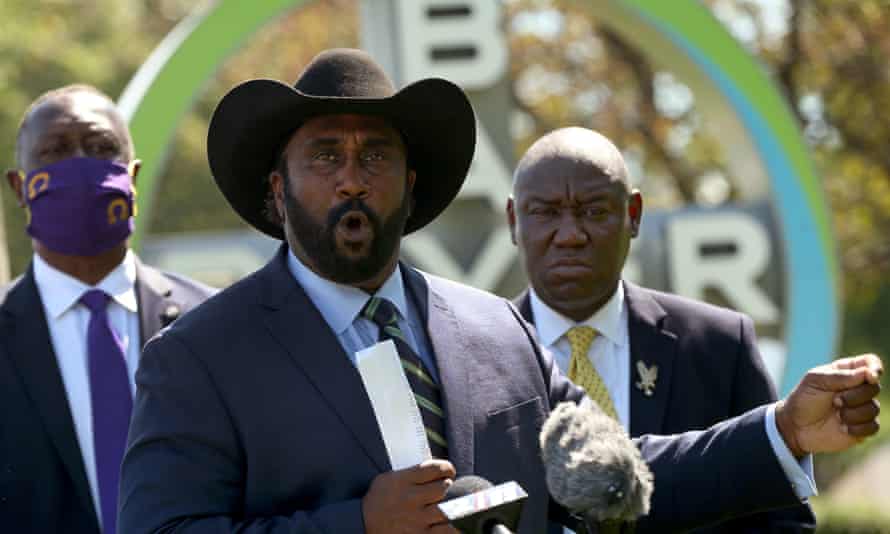Thursday’s hearing came on the heels of $5bn being allocated to socially disadvantaged farmers of color earlier this month as part of the coronavirus relief and economic stimulus package. The funding – $4bn for debt forgiveness, $1bn for other forms of support – is meant to account for generations of mistreatment of farmers of color by the USDA.
“This festering wound on the soul of agriculture must be healed,” said congressman David Scott of Georgia, who was born on a farm in South Carolina owned by his grandparents and now serves as the first ever Black person to chair the committee.
Black farmers offered familiar testimonies of racism in the industry and from the USDA. Sedrick Rowe, an organic peanut farmer in Georgia, spoke of crop buyers telling him they are done buying peanuts for the day when he shows up. PJ Haynie of the National Black Growers Council told of Black farmers getting by on non-irrigated land while their white neighbors used USDA assistance to irrigate theirs.
Once making up about 14% of US farmers, Black farmers make up less than 2% today. Many were forced out by racist lending practices by the agriculture department that led to vast losses of land, income, profits and generation wealth.
That wealth cannot be regained. Black farmers will never get the land they lost back. But the USDA seems to be trying to foster a renewed trust in the department.
In addition to Scott’s landmark appointment in December, the USDA, perhaps as an acknowledgment of Tom Vilsack’s second term as agriculture secretary being met with disappointment by many Black farmers and leaders, named Dewayne Goldmon, former executive director of the National Black Growers Council, as the USDA’s first-ever senior adviser for racial equity. And, if confirmed, Jewel Bronaugh will be the first Black woman to serve as deputy secretary for the department.
Still, Black farmers remain skeptical. “That’s all very much good intention. But the foundation of the USDA is crooked,” said Michael Carter, a Virginia farmer, of the seemingly reactive diversity efforts. “You can’t put a new roof on and expect the foundation to be straight again.”
Scott asked Vilsack on Thursday how much of his time will be devoted to getting the $5bn in stimulus funds in the hands of Black farmers. Vilsack responded that he has no doubt his staff understands this is at the top of his list in terms of priorities.
“This is a meeting I’ve been advocating for for 30 years,” said John Boyd Jr . “On behalf of every Black share cropper and Black farmer we thank you for finally hearing our cries.”

But as president and founder of the National Black Farmers Association, Boyd said his phones were ringing off the hook with farmers asking when they will get the relief. By the end of the four and a half hour hearing, that rollout was still not clear. Boyd, who has advocated on behalf of Black farmers and brought issues of inequality to the forefront for decades, urged swift movement to implement this debt relief.
“This should’ve been doing in the first place,” he said over the phone. Reminded of his own advocacy towards Thursday’s hearing, he remained resolute. “You don’t think about it. You got so many hurdles, so many fights.



No comments:
Post a Comment
Note: only a member of this blog may post a comment.